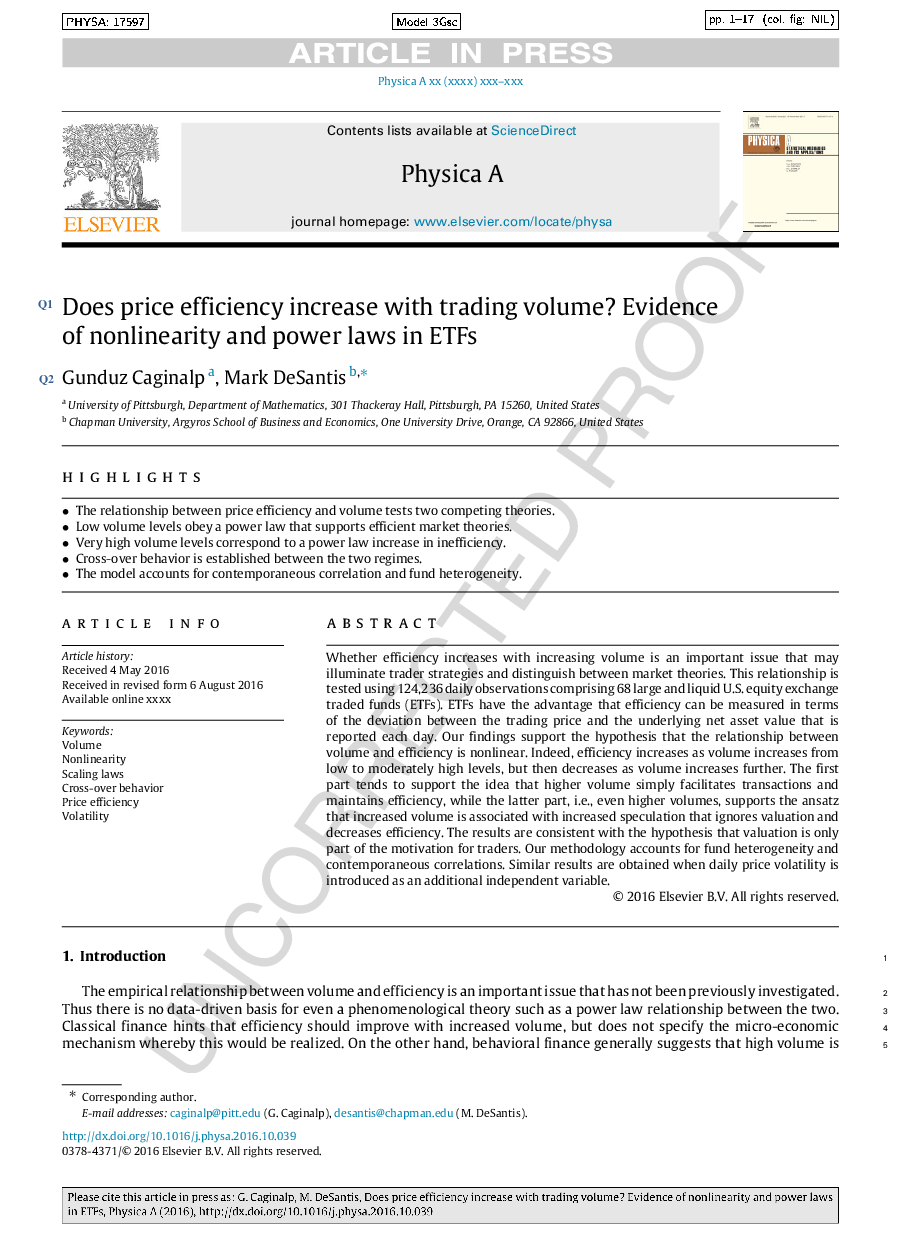| Article ID | Journal | Published Year | Pages | File Type |
|---|---|---|---|---|
| 5103433 | Physica A: Statistical Mechanics and its Applications | 2017 | 17 Pages |
Abstract
Whether efficiency increases with increasing volume is an important issue that may illuminate trader strategies and distinguish between market theories. This relationship is tested using 124,236 daily observations comprising 68 large and liquid U.S. equity exchange traded funds (ETFs). ETFs have the advantage that efficiency can be measured in terms of the deviation between the trading price and the underlying net asset value that is reported each day. Our findings support the hypothesis that the relationship between volume and efficiency is nonlinear. Indeed, efficiency increases as volume increases from low to moderately high levels, but then decreases as volume increases further. The first part tends to support the idea that higher volume simply facilitates transactions and maintains efficiency, while the latter part, i.e., even higher volumes, supports the ansatz that increased volume is associated with increased speculation that ignores valuation and decreases efficiency. The results are consistent with the hypothesis that valuation is only part of the motivation for traders. Our methodology accounts for fund heterogeneity and contemporaneous correlations. Similar results are obtained when daily price volatility is introduced as an additional independent variable.
Related Topics
Physical Sciences and Engineering
Mathematics
Mathematical Physics
Authors
Gunduz Caginalp, Mark DeSantis,
